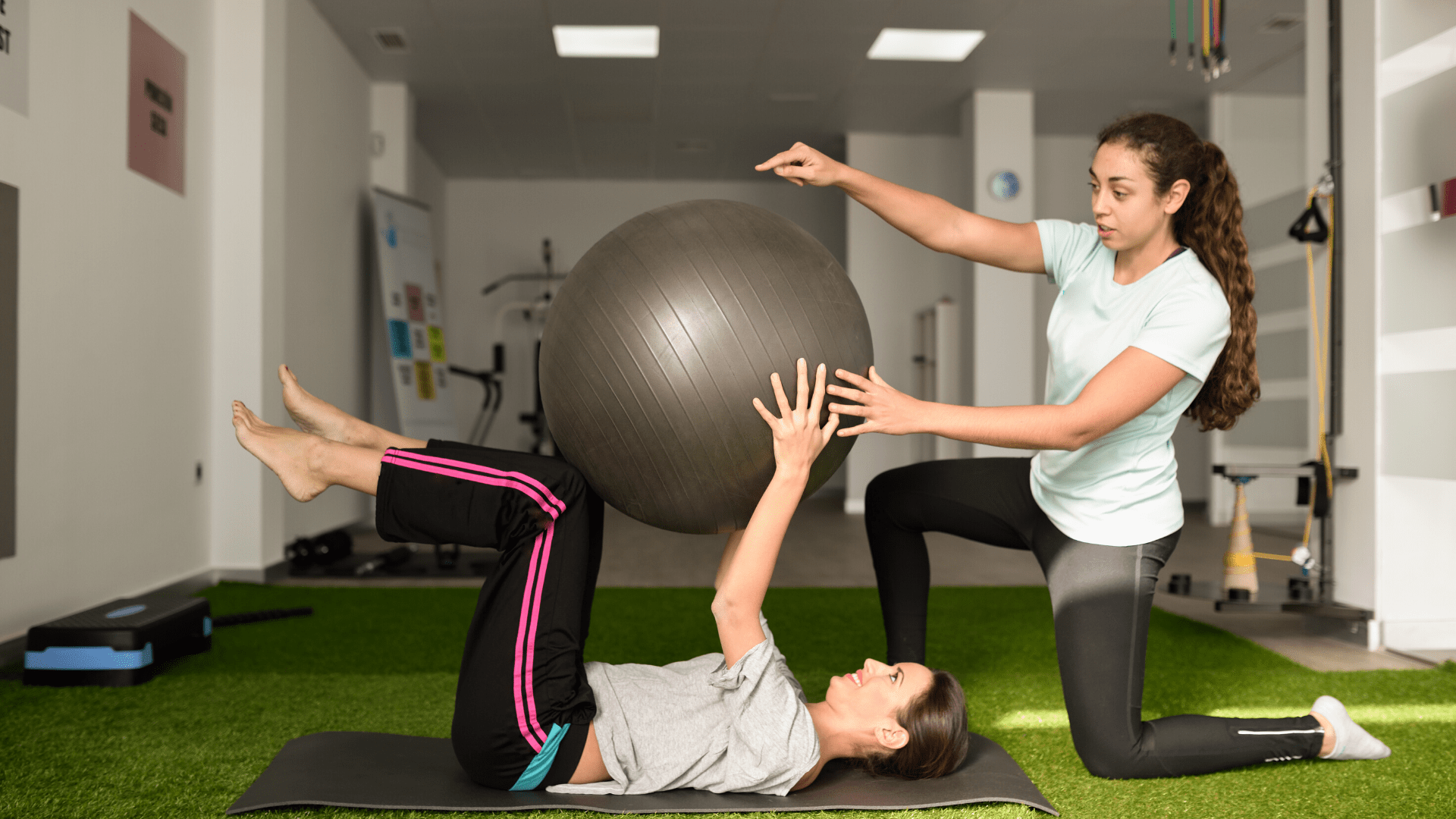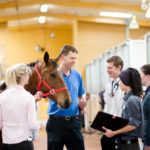
Q&A with a Canadian Graduate from University of Sydney Physiotherapy School
“In fact, 2022 me working as a physiotherapy assistant at an aged-care facility used to dream of being the person I am today.”
That’s what former OzTREKK student, Jessica, had to say when asked about how she changed over the course of her physiotherapy degree at the University of Sydney.
She answered a few other questions too, like why chose to study in Australia, what she learned, her advice for future students, and more.

Keep reading for more feel-good insights!
Tell us a bit about yourself! Where and what did you study before going to Sydney for physiotherapy, your hobbies or volunteer work, why you wanted to become a physiotherapist, etc.
My name is Jessica (Jess) and I’m from Toronto, Canada, now working as both a physiotherapist in aged care and community. Before coming to Sydney, I did my bachelor’s in health sciences and kinesiology at the University of Ontario Institute of Technology.
My current hobbies include cooking and pickleball, which are both interests I picked up here in Sydney! I was never a great cook, but to convince my parents I’ll be okay moving to the other side of the world I at least had to give them a sense of peace that I can feed myself. Pickleball is a wild card because I met some of the loveliest people through social groups, one being Sydney Pickleball Club.
I wanted to be a physiotherapist because of my parents and grandma. I always knew functional decline was inevitable, but pain will only stop you if you let it! I love helping people and even if I can help one person make one aspect of their life easier; that there is a reward I can’t describe, aside from pure happiness. I didn’t go into this field with the same mindset the majority did where they wanted to work in private practices with sport injuries. I wanted to work in aged care as I believe every stage in life deserves a chance to improve the quality of life. I guess this is subjective since I worked as a physiotherapy assistant prior to studying my master’s, but that interest never died down even after all my clinical placements in different areas.
How did OzTREKK help you before you started your physio degree?
OzTREKK was the backbone of my application. At least to me, I don’t think it is common for Canadians to study overseas, which is why I was so relieved I found out at this organization. If I could look up how many emails with questions and concerns I had prior to coming to Australia, I’m sure it’s closer to 100 than 50. OzTREKK helped me sort out all the paperwork, which made my life extremely easy as I would have been overwhelmed by all the documents I would have to sift through. OzTREKK even prepared me for program specific needs like the mandatory health checks for clinical placements. I would not have had the strength to apply overseas if I didn’t have this agency, really.
Why did you choose to go to Australia for physiotherapy?
I knew that I would have to travel to another province or country regardless, so why not fly the farthest away possible? In all seriousness though, it’s not that I did not like the Canadian education system, but I felt like I could learn more from foreign countries and explore differences in the health care system. I always wanted to see the discrepancy in how health care in Canada differs from other countries and when Australia presented the opportunity to me, I had to take it. I also knew that I could have the opportunity to work in both countries, which I thought would be a great way to expand my skillset and knowledge.
What was living in Australia like as a student? Did anything surprise you?
Aside from the cost of living, I think the animals here were also a major surprise. No, I have not seen a spider the size of my face here, but I have seen various sizes and types of birds and insects. I think my favourite has to be the bush turkey. I still think about the day I was at Shelly Beach reading, and I was greeted by a bush turkey after my chips.
Another fact about Sydney in particular that surprised me was how early everything closed here. To be honest I think it is fair as it promotes a healthy work-life balance, but on the flip side, everything closes at 5 p.m., meaning I cannot go shopping after work aside from groceries, or Kmart/Target.
Why did you choose Sydney for your degree? How did it meet (or even exceed) your expectations?
I chose the University of Sydney for my degree because of its world status. I mean, who wouldn’t want to say they graduated from the “Harry Potter looking school” in Australia?
The University of Sydney offered a pretty good program when it came to physiotherapy, and I particularly loved how they tossed students into simulation labs/tutorials to practice hands-on skills from the first week. “Textbook” cases are never seen in real life, and I don’t think anything could have prepared me for placements, but I am glad Sydney required my program to complete 4 blocks in different areas.
The University of Sydney met my expectations. I learnt the foundation, and it is up to me to continue practicing my clinical reasoning and continue using research to support my treatments for my patients.
What aspects of your degree do you feel best prepared you for real-world practice?
I think the concepts from each course played a part in real-world practice. I still needed to have an understanding of how the body works and why certain problems occur. That is all theory. The clinical placement component in second year is where I actually put what I learned into practice, and that was a very humbling experience.
I remember being taught clinical reasoning in school, but none of it made sense until I did clinical placements. In fact, I laugh at my notes at how poorly I understood the meaning of clinical reasoning from my first day of the program, compared to now 4 months post-graduation.
What’s the physio community like at the University of Sydney? Did you have opportunities to get involved with the broader university, healthcare, or city community?
It is hard to not make friends in this program as we had to get quite familiar with each other during tutorials. Every tutorial/simulation lab involved partners or groupings because we had to practice treatment or assessments on each other. Occasionally, we would also get selected to demonstrate to the rest of the class how that would look.
I had lots of opportunities to get involved with my university during O-week, which is “frosh” or “welcome week” here in Sydney—so many different clubs and different events to get to know people.
Was there a specific moment during your degree or shortly after when you realized you were actually practicing physiotherapy? Tell us about it!
I think the specific moment during my degree that made me realize, this is real life; I am a physiotherapist, would have to be my third clinical placement in an outpatient hospital for musculoskeletal cases.
I had one patient post total knee replacement who I was helping since the first week out of five for the duration I was there. The first day I saw this patient, they used a crutch, had gait compensations and feared falling. Twice a week I would encourage this patient and provide exercises in hopes of promoting recovery. On my last day at this placement, this same patient regained confidence, returned to work, and became more adherent to strengthening exercises.
I still remember this patient saying to me, “You are the reason I no longer need those crutches, because I am confident in my strength.” Not to be corny, but this is what I lived to experience—to see a positive impact on someone’s life. This was the moment I realized, “I did it. I actually made a difference in a patient’s life. All the hard work and several all-nighters studying paid off.”
How did your interests or plans change from when you started your degree to when you finished?
My interests stayed consistent all throughout my schooling; however, I did have a particular interest in neuro-rehabilitation. Now I’m more of a combination where I genuinely enjoy all aspects of health. The consistency is in the fact I want to help older adults. In fact, 2022 me working as a physiotherapy assistant at an aged-care facility used to dream of being the person I am today.
Where are you and what are you doing now that you’ve graduated? Do you plan to stay in Australia?
I am working as a community physiotherapist on the weekends, and a physiotherapist in an aged-care nursing home during the weekdays. Both jobs require me to continuously practice my skills and expand my exposure to different cases.
At the moment, I am staying in Australia to improve my skills. I do have plans to go back to Canada; however, in the interim, I still believe there is a lot for me to learn and perfect, which I why I decided to stay in Australia to work.
What advice do you have for students just starting their physio journey?
1. Don’t worry, everything works out when you get tossed into the new environment. I had so many questions, doubts, and uncertainty about whether I had everything I needed or if I could survive on my own halfway across the world. But I did, and you can, too!
2. I found out that the process of applying is actually not as bad as I thought. The process should have been easy, but I overthink, and I think it’s the nervousness of moving away that gets in the way.
3. Don’t be shy to put yourself out there when you start your physio journey. It’s a learning experience, and if you don’t allow yourself to make mistakes in front of others, you won’t be able to learn well.
4. Study for your practical exams at least 2 weeks in advance. Everything adds up and you won’t have time during exam periods to cram it all. Written and practical exams are squeezed into the same timeframes here, and I mean back-to-back exams every day for days.
5. Eat at El Jannah. You deserve a crispy box with solo lemonade (my favourite exam season meal)!
About University of Sydney DPT
(While Jessica completed the 2-year Master of Physiotherapy, Sydney changed the program to a Doctor of Physiotherapy in 2024.)
The University of Sydney offers a 3-year graduate-entry Doctor of Physiotherapy program intended for students who wish to become physiotherapy professionals working in variety of settings, including clinical and academic settings. The new Sydney Doctor of Physiotherapy (DPT) program includes advanced clinical training and streamlined entry requirements. This degree involves a new model of clinical experience, enabling better integration and ongoing development of theoretical knowledge, clinical skills, and clinical reasoning.
Program: Doctor of Physiotherapy
Location: Sydney, New South Wales
Duration: 3 years
Semester Intake: February/March
Application: Generally the end of July each year



































Ask A Question
Ask us about your program of interest, or if you have a question about our services.
CONTACT US TODAY